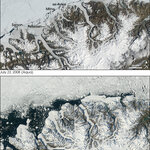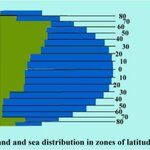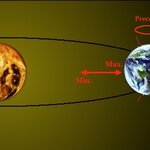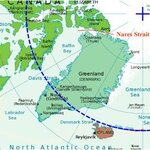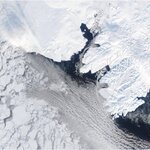
Arctic Tipping Points - #3: More About Feedback
This series is a follow-on to my 3-part series Arctic Ice 2010. It begins with part #1: Background And Recent History. In Arctic Tipping Points - #2: Some Feedback Mechanisms I wrote:
A stable dynamic system may react in opposition to a disturbing force, tending to bring the system back into the original stable regime. Alternatively, the system may amplfy or augment the disturbing force, thus bringing the system more rapidly into a new, different stable regime. For any given system, the point at which the system begins to…

